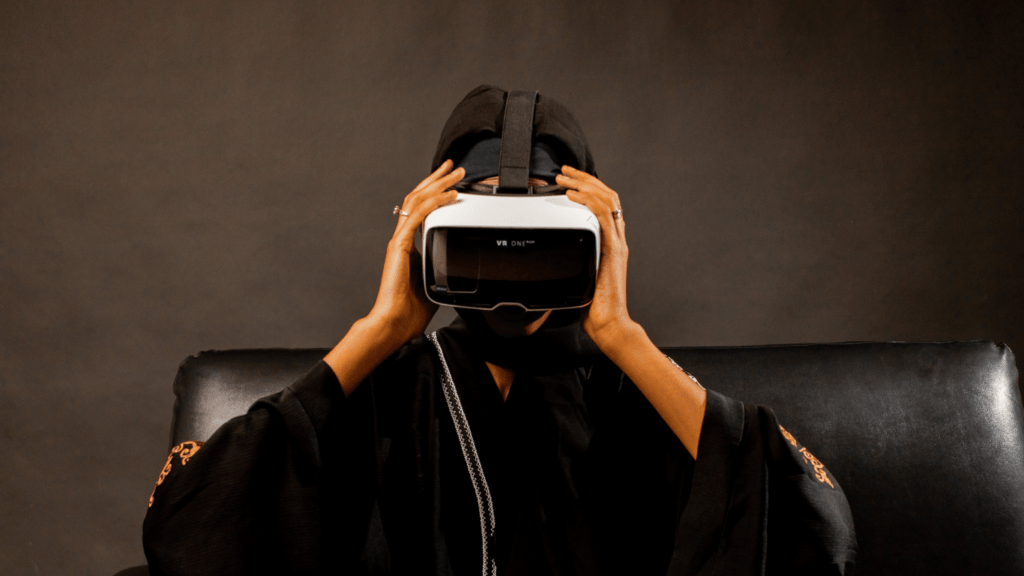Exploring the Rise of Virtual Reality Casinos
Virtual Reality casinos are rapidly gaining popularity in the online gambling scene. Players can enjoy immersive experiences that rival traditional gambling venues.
What Are Virtual Reality Casinos?
- Virtual Reality casinos use VR technology to simulate a real-world casino environment.
- Players don VR headsets to enter digital casinos, complete with slot machines, poker tables, and roulette wheels.
- These virtual spaces allow for seamless interaction with other players and dealers, all within a highly convincing 3D environment.
- In VR casinos, players create avatars to navigate the virtual space.
- These avatars can interact with surroundings and other avatars, enhancing the social aspect of gambling online.
- Players can engage in live chats, join multiplayer games, and even watch others play, much like they would in a physical casino.
How Virtual Reality is Transforming Gaming Experiences
Virtual Reality is transforming gaming experiences by making them more realistic and interactive. Traditional online casinos offer games on a flat screen, but VR casinos surround players with rich, immersive environments.
This makes the gaming experience feel more authentic.
VR technology allows for high levels of customization. Players can personalize their avatars, choose different casino settings, and even access exclusive in-game events.
For example, some VR casinos host special poker tournaments or themed nights that offer unique rewards and experiences.
Additionally, VR casinos are improving accessibility. Players can explore these virtual spaces from anywhere, removing the need to travel to a physical location.
This convenience, combined with the engaging experience, is attracting a growing number of gamers to VR casinos.
Virtual Reality Casinos vs. Traditional Casinos
Virtual Reality (VR) casinos offer a vastly different experience compared to traditional casinos. While both provide gambling options, the technology and engagement levels differ greatly.
The Technology Behind VR Casinos

VR casinos leverage advanced technologies to create immersive gaming environments. They use VR headsets, motion sensors, and haptic feedback devices to simulate a real-world casino setting.
Players can interact with the environment and other avatars in real-time. This technology enhances the realism of online gambling, offering features like virtual dealer assistance and 360-degree casino views.
Traditional casinos, however, rely on physical infrastructure. They use slot machines, card tables, and other gaming apparatus to facilitate gambling. The technological aspects in these casinos focus more on flashy displays and sound effects rather than immersive experiences.
Player Experience and Engagement
The player experience in VR casinos is more interactive and engaging. Players use avatars to navigate the casino, engage in conversations with others, and participate in various gaming activities.
The social aspect is strong for those wanting to communicate and make connections while playing. Customizable environments and exclusive events add another layer of excitement.
Traditional casinos offer a different kind of engagement, relying on the physical presence and ambiance to captivate players. The tactile sensation of handling chips, the thrill of watching a live dealer, and the overall atmosphere contribute to the excitement.
However, the level of personalization and virtual interactivity found in VR casinos is absent.
Overall, VR and traditional casinos provide unique experiences with distinct technological and engagement features.
While traditional casinos focus on physical elements, VR casinos leverage advanced technology for a more immersive and customizable experience.
Advantages of Virtual Reality in Gambling
Virtual Reality (VR) casinos provide an array of benefits that make them stand out in the online gambling industry. Here, I break down key advantages.
Enhanced User Experience
VR casinos offer an unmatched user experience. Gamblers can immerse themselves in highly realistic 3D environments where they interact through avatars.
This technology adds layers of social interaction that traditional online casinos can’t match. For instance, live chat features enable conversations with other players, creating a community feel.
The environment’s customization options, such as personalizing avatars and betting spaces, also contribute to a more engaged and tailored experience.
Safety and Access
Safety and accessibility are vital in VR gambling. VR casinos implement high-level encryption protocols to protect user data, fortifying against security breaches.
Multi-layer authentication adds an extra layer of security. Access expands significantly with VR; players can join from anywhere, bypassing the need to travel to physical locations.
This accessibility allows people from diverse geographical areas to experience the thrill of gambling without constraints like distance or health restrictions. VR technology ensures both a secure and borderless gaming experience.
Potential Challenges and Limitations
Despite the promising aspects of VR casinos, several challenges exist that could hinder their widespread adoption.
Regulatory Hurdles
VR casinos face significant regulatory challenges globally. Online gambling regulations vary by country and even region. Compliance with these rules requires considerable effort and can be time-consuming.
Jurisdictions like the US and the EU have stringent regulations to prevent money laundering and ensure fair play. Differences in legal frameworks complicate international operations.
Technology Costs and Limitations
The cost of VR technology presents a barrier for users and operators. High-end VR headsets like the Oculus Rift and HTC Vive range from $400 to $800. This expense can deter casual gamblers.
Additionally, VR casinos require powerful hardware for optimal performance, including high-processing computers and stable internet connections.
Limited access to such equipment restricts the user base. Developers also face challenges in creating seamless and lag-free experiences, which are crucial for maintaining user engagement.
The Future of Gambling
Virtual Reality Casinos are poised to revolutionize the gambling industry. These platforms offer unparalleled immersive experiences and unique social interactions.
Predictions for VR Casinos
Experts forecast that VR casinos will dominate the gambling sector by 2030, driven by technological advances and growing user interest. Increasingly realistic graphics and complex AI systems will create more engaging environments.
A 2023 report by Statista indicates VR gaming revenue could reach $5 billion by 2025. VR casinos will likely contribute a significant portion of this growth, enhancing player experiences and attracting new users.
With blockchain integration, VR casinos promise secure, transparent transactions. Cryptocurrencies may become the primary payment method, simplifying cross-border transactions and reducing fraud.
This could lead to widespread adoption of decentralized casinos, providing players with more control over their funds and data.
Evolution of VR hardware will play a crucial role. Lightweight, affordable headsets will become more accessible, overcoming current barriers. Companies like:
- Oculus
- HTC
- Sony
are already working on next-gen devices that will shape the future landscape of VR casinos.
Regulatory bodies will adapt to oversee VR gambling, ensuring fair play and protecting users. As governments recognize the potential of VR casinos, international regulations will likely become more streamlined.
This will facilitate smoother operations and encourage the growth of VR gambling markets worldwide.



